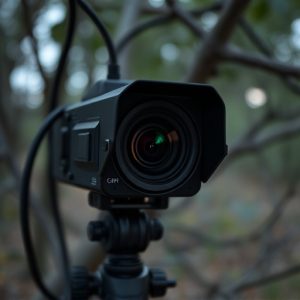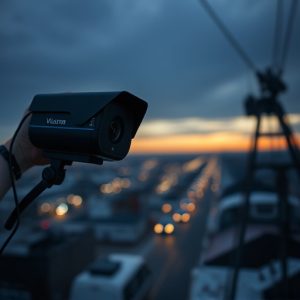Discreet Home Surveillance: Legal Secrets for Safe Camera Placement
Before installing secret nanny cameras for residential security, homeowners must thoroughly understa…….
Before installing secret nanny cameras for residential security, homeowners must thoroughly understand and comply with local laws regarding these devices, which vary widely across jurisdictions. This involves strategically placing cameras in open spaces like living rooms or hallways, while avoiding areas with a reasonable expectation of privacy, such as bathrooms and bedrooms. Transparency is key; notifying all residents about the camera's existence and purpose can maintain trust and foster a secure environment without infringing on personal privacy, guided by adhering to the laws regarding secret nanny cameras. Consulting legal professionals can help navigate these complexities.
“Enhance your residential safety with our comprehensive guide on secret camera mounting, tailored to modern homeowners’ needs. Explore the intricate balance between security and privacy as we navigate the legal boundaries surrounding secret nanny cameras. From understanding crucial laws to implementing ethical placement strategies, this article equips you with insights to install discrete surveillance systems while respecting inhabitant privacy. Stay informed about your rights and obligations regarding these devices.”
- Understanding Legal Boundaries: What You Need to Know About Secret Cameras
- Safe and Ethical Placement: Strategies for Discreet Home Surveillance
- Privacy Considerations: Protecting Inhabitants and Maintaining Legality
Understanding Legal Boundaries: What You Need to Know About Secret Cameras
Before mounting a secret camera for residential safety, it’s crucial to understand the legal boundaries set by laws regarding secret nanny cameras and hidden surveillance devices. Each jurisdiction has its own regulations that dictate where and how such devices can be used. In general, installing a secret camera in private residential spaces without explicit consent is often considered a violation of privacy rights.
The Laws Regarding Secret Nanny Cameras vary widely, with some states explicitly prohibiting the use of hidden cameras in homes or requiring explicit notification to all occupants. It’s essential to research and comply with local laws to avoid legal repercussions. Homeowners considering secret camera mounting should consult with legal professionals to ensure their safety measures do not infringe upon privacy rights, thereby fostering a secure environment within their own homes without compromising legality.
Safe and Ethical Placement: Strategies for Discreet Home Surveillance
When considering secret camera mounting for residential safety, it’s paramount to balance effective surveillance with respect for privacy—a delicate tightrope governed by laws regarding secret nanny cameras and ethical considerations. Placement should be strategic yet discreet, avoiding areas where individuals have a reasonable expectation of privacy, such as bathrooms and bedrooms. Cameras should be positioned in open spaces like living rooms or hallways, where their presence is less likely to invade personal space and more likely to serve as a deterrent for potential intruders.
Moreover, it’s crucial to ensure that any video footage captured by these devices complies with relevant laws. Understanding the legal implications of secret cameras varies by jurisdiction, so consult local regulations to avoid inadvertently breaking the law. Ethical considerations include notifying all residents within the home about the camera’s existence and purpose, ensuring informed consent—especially when installing secret nanny cameras. Transparency fosters trust and ensures that everyone involved understands their rights and responsibilities in the surveillance process.
Privacy Considerations: Protecting Inhabitants and Maintaining Legality
When setting up secret cameras for residential safety, it’s crucial to balance enhanced security with privacy considerations. While these devices offer valuable insights into your home’s activities, installing them surreptitiously raises ethical and legal questions. Remember, everyone has a right to privacy in their own space, and laws regarding secret nanny cameras vary by region. It’s essential to understand and adhere to local regulations to avoid potential legal repercussions.
Protecting the inhabitants’ privacy involves placing cameras responsibly, ensuring they don’t record areas where individuals expect privacy, like bathrooms or bedrooms. Maintaining legality requires transparency—informing all residents that surveillance is in place. This approach fosters trust and avoids conflicts while still providing a layer of security for your home.
When considering residential safety through secret camera mounting, it’s paramount to balance effective surveillance with legal boundaries and ethical concerns. Understanding the laws regarding secret nanny cameras (and other covert recording devices) is crucial to protect both your privacy rights and that of your inhabitants. While these tips offer strategies for discreet home surveillance, always ensure compliance with local regulations to avoid legal pitfalls. By prioritizing safety while respecting privacy, you can create a secure environment without sacrificing peace of mind.


